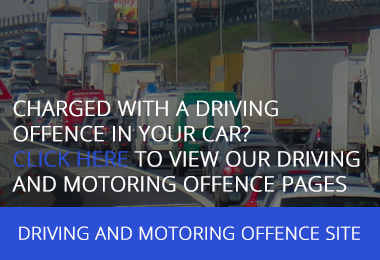School Minibuses & Section 19 Permits – Am I Legal?

Operating school minibuses under a Section 19 Permit can be a heavy responsibility. Unless you have a background in the transport industry, it is unlikely that you will have much experience in navigating the often complex legal regulations that govern the operation of school minibuses. When the safety of students, passengers, and other road users is concerned, nothing is more important than getting it right.
This article explores the rules governing the operation of school minibuses under Section 19 permits, what can happen if those rules are infringed, and where to turn if you need help.
What is a Section 19 Permit?
In the UK, most organisations that take payment in return for carrying passengers in a vehicle adapted to carry more than 8 passengers will need a full Public Service Vehicle (PSV) Operator’s Licence. The rules governing PSV Operator’s Licences are extensive, and cover everything from where the vehicle is to be kept, how it is to be maintained, how often it is to be checked, and who is responsible for ensuring compliance.
There are however, a small number of exceptions to the requirement to hold a full PSV Operator’s Licence. One of these exceptions applies to not-for-profit organisations concerned with education, religion, social welfare, recreation, or other activities of benefit to the community. This exception is contained within Section 19 of the Transport Act 1985, and to rely upon this exception you will need to apply for and be granted what is known as a Section 19 Permit.
Be aware however, a Section 19 Permit holder who operates outside of the scope of their permit is committing a criminal offence. It is also a criminal offence to operate without a relevant Permit or PSV operator’s licence, in circumstances in which one is required.
For help applying for a Section 19 Permit, or if you are unsure whether you are eligible for one, speak to one of our transport lawyers today.
What Are Your Responsibilities under a Section 19 Permit?
The legal responsibilities on the holders of a Section 19 Permit depend on the type of vehicle being operated, but will typically include at least the following:
- Ensuring that the types of vehicles to be used are suitable to carry passengers including disabled passengers
- Keeping the vehicles in a fit and serviceable condition
- Carrying out regular maintenance inspections
- Having a system to identify and rectify mechanical faults
- Ensuring drivers have regular compliance training
- Carrying the legally prescribed equipment on board
- Keeping all records for the prescribed periods of time
- Carrying out driver licence checks
Be warned however – it is not enough to just pay “lip service” to these responsibilities. If something goes wrong with one of your vehicles or, worse still, a passenger is harmed, it will be up to you as the permit holder to demonstrate that you were running a legally compliant operation. If you are unable to do so, you may be at risk of a civil action or even a criminal prosecution.
Can a School Minibus be Driven on an Ordinary Car Licence?
The answer is: “it depends”. This is a complex area and will depend on a number of issues including:
- When the driver first acquired his or her car licence
- The age of the driver
- Whether a trailer is to be towed
- The weight limit of the vehicle and the use to which it is being put
- The driver’s payment arrangements
The driver of a school minibus who drives without the necessary driving entitlements is committing a criminal offence. The organisation holding the Section 19 Permit may also be at risk of prosecution for offences including causing or permitting a person to drive otherwise than in accordance with their licence.
For more information speak to one of our transport lawyers.
How We Can Help
At Smith Bowyer Clarke our transport lawyers are specialists in this area of law. We can advise you on whether your current minibus operations are compliant. We can arrange a confidential audit of your existing operations and advise on and – crucially – help to implement any new compliance systems that may be required.
For a free initial consultation speak to one of our lawyers today and ask about our fixed-fee arrangements.


